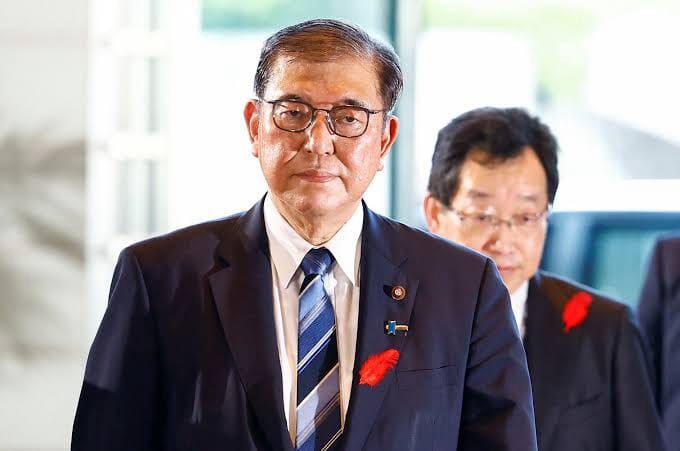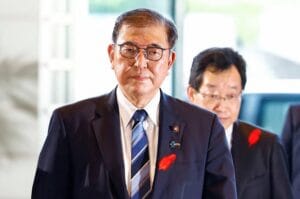New Japanese PM faces early test amid scandal, defence pledges ahead of election
Japan’s newly appointed leader, Shigeru Ishiba, has opened his inaugural policy speech with a public apology for the financial misconduct scandal that has rattled the ruling Liberal Democratic Party (LDP).

New Japanese PM Shigeru Ishiba, has opened his inaugural policy speech with a public apology for the financial misconduct scandal that has rattled the ruling Liberal Democratic Party (LDP).
The slush fund controversy, which tainted his predecessor, Fumio Kishida, threatens to undermine Ishiba’s standing with the public ahead of an imminent parliamentary election on October 27.
“I will achieve politics that is not for politicians but for the people,” Ishiba vowed in his speech on Friday, signaling his commitment to transparency and ethical governance as he works to regain public trust in a party still reeling from the scandal.
Despite the pressing domestic issues, much of Ishiba’s address focused on defense, underscoring the escalating security threats Japan faces. He announced plans to reinforce Japan’s military capabilities, a move framed as a necessary response to increasing threats from China, Russia, and North Korea. Citing recent incidents like the violation of Japanese airspace by Chinese and Russian warplanes, as well as North Korea’s missile tests, Ishiba portrayed Japan’s security situation as fragile and demanded a robust response.
Though widely known for advocating a more balanced Japan-U.S. security relationship and proposing a NATO-like defense system for Asia, Ishiba notably avoided these topics, likely attempting to sidestep pre-election controversy. Nevertheless, his emphasis on the Japan-U.S. alliance remained unwavering, describing it as the “cornerstone” of Japan’s foreign policy and defense, crucial for peace in the Indo-Pacific region.
Also Read:Biden signals support for possible Israeli strikes on Iranian oil facilities
In an effort to balance Japan’s security stance with diplomatic initiatives, Ishiba also promoted a “strategic, mutually beneficial relationship” with China, suggesting increased communication to foster more “stable and constructive” ties. Furthermore, he highlighted the importance of strengthening trilateral cooperation between Japan, South Korea, and the U.S., as part of a broader strategy for regional security.
While security dominated much of the speech, Ishiba also addressed Japan’s economic challenges. He pledged support for wage increases that outpace inflation and vowed to foster investment that creates “a virtuous cycle of growth and distribution.” Promising economic aid for low-income households and disaster resilience measures, Ishiba presented an ambitious domestic agenda. Notably, he reversed his previous stance on nuclear power, indicating he would push for maximizing nuclear energy use alongside renewable sources like geothermal energy to meet growing electricity demands driven by AI advancements.
However, Ishiba faces a challenging road ahead. With public support hovering at a mere 50%, unusually low for a new leader, and criticism from opposition leaders who accuse him of rushing the election without delivering substantive results, the coming weeks will be crucial for his political survival. The election will offer the first real test of whether Ishiba can successfully navigate the LDP’s crisis while advancing his defense and economic agendas in a skeptical political landscape.
As the clock ticks toward October 27, Ishiba’s ability to balance these challenges may determine both his political future and Japan’s path forward.













